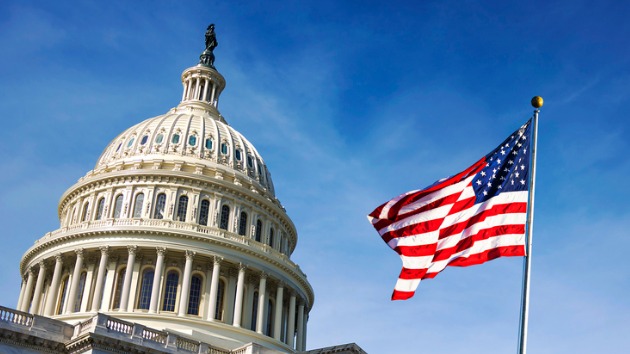 uschools/iStockBy MICHELLE STODDART and LUKE BARR, ABC News
uschools/iStockBy MICHELLE STODDART and LUKE BARR, ABC News
(WASHINGTON) — The widow of Howard Liebengood, a U.S. Capitol Police officer who died by suicide three days after the Jan. 6 attack on the Capitol, has sent a letter to her member of Congress, asking she help get her husband’s death be designated as “in the line of duty.”
“After assisting riot control at the Capitol on January 6th, USCP scheduled Howie to work lengthy shifts in the immediate days following. He was home for very few hours over the course of four days,” Serena Liebengood wrote to Rep. Jennifer Wexton, D-Va., revealing details apparently not publicly known.
“Although he was severely sleep-deprived, he remained on duty — as he was directed — practically around the clock from January 6 through the 9. On the evening of the 9, he took life at our home,” she wrote of her 51-year-old husband.
Liebengood called the “reluctance” by U.S. Capitol Police Acting Chief Yogananda Pittman to do so a “wrong which must be rectified,” asking that Congress intervene.
Pittman responded in a statement Thursday, saying, “While I want to support the Liebengood family to the maximum extent possible, Line of Duty Death declarations are given to officers who die while carrying out official law enforcement responsibilities.”
She cited that even law enforcement officers who had killed themselves after responding to the 9/11 attacks were not classified as having died in the line of duty.
Liebengood also requested a bipartisan commission, which has been in the works in Congress, to examine the causes of the riot and security failures.
“The Liebengood family wants Howie’s death to not have been in vain. Recognition of the cause of his death, much like the critical examination of the riot itself, will remain central to how we make right those tragedies and help avoid their repetition,” she wrote.
“I’m hopeful that a bipartisan commission will examine the root causes of the January 6 riot and make recommendations to avoid its reoccurrence,” she wrote. “What must not be lost in all of this is that my beloved husband died as the result of his dedication to the USCP and the sacrifices he made to his well-being on January 6th and the ensuing days, just as assuredly as if he had been slain on the Capitol steps.”
Liebengood noted she wanted her husband’s death to bring support to U.S. Capitol Police officers and reforms to the police force, especially when it comes to mental health and well-being.
Pittman, in her statement, responded the force had increased access to mental health for officers.
“With a full understanding of and immense appreciation for the toll our profession can have on officers, the Department has always made mental health resources available to our workforce and significantly increased those resources in size and scope after January 6th,” she said.
Karen Solomon, who runs the law enforcement suicide group Blue HELP, which tracks law enforcement suicides around the country, told ABC News that there are no guidelines on establishing a suicide as a line of duty death.
“What brought the officer to the point of suicide, and why couldn’t that officer get help? And once we can answer those two questions, we can assign it a line of duty death designation,” Solomon said.
In her letter, Liebengood outlines her husband’s “warm, gentle, and compassionate” personality and his “devotion” to service in the Senate.
“There is no way to convey what our family is going through, as we struggle to simply function in our grief,” Liebengood wrote. “We never could have imagined that we would lose Howie so early in our lives.”
She emphasized that her late husband had deep roots with the Senate.
Liebengood’s father had served for years in the Senate, she said, and even worked as Senate Sergeant at Arms. Liebengood started work at the Capitol as a page, and the Liebengood family totaled more than 50 years of service in the Senate. Minority Leader Mitch McConnell gave an emotional nod to his “friend” Liebengood in an floor speech at the end of former President Donald Trump’s impeachment trial.
“Today I want to reaffirm the huge respect and gratitude that I have – and I believe all senators have – for the men and women of the USCP who put their own safety on the line every single day that they clock in and stand guard. Neither the institution of Congress nor the American people will ever forget the bravery and the valor of Officer Brian Sicknick, who sacrificed himself to protect this place and those inside it.
“We will not forget our friend Officer Howard Liebengood,” McConnell said. “And we will never forget our debt to all brave USCP officers and their families. It is more than just comforting to come to work in a place protected by such fine men and women, at risk to themselves; it is also very humbling.”
ABC News’ Rachel Scott contributed to this report.
Copyright © 2021, ABC Audio. All rights reserved.



Comments are closed.